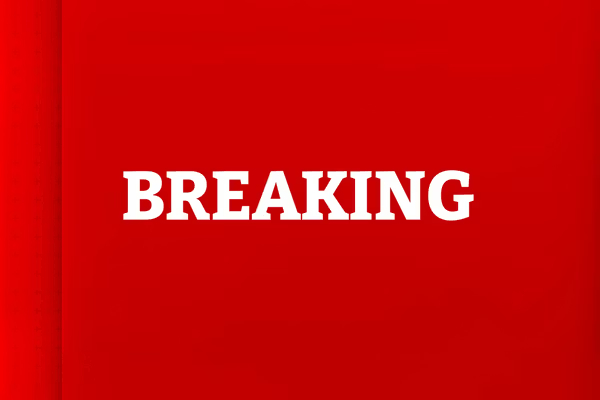
Snapback sanctions on Iran a done deal by month’s end, Macron says
Snapback sanctions on Iran will be triggered at the end of this month, French President Emmanuel Macron said in an interview with Israel’s Channel 12 on Thursday.

Snapback sanctions on Iran will be triggered at the end of this month, French President Emmanuel Macron said in an interview with Israel’s Channel 12 on Thursday.

European states at the center of a sanctions drama with Tehran due for a finale next month deemed an Iranian proposal to gain a reprieve insufficient and overly demanding, a Wall Street Journal reporter said on Thursday.
The country faces conditions similar to wartime following Israeli and US airstrikes on its nuclear facilities, Iran’s nuclear chief said on Wednesday, warning that inspections by the International Atomic Energy Agency would not fully resume without new safeguards.
Fifty Senate Republicans wrote to the foreign ministers of the UK, France and Germany, urging them to press ahead with the reinstatement of United Nations sanctions on Iran, Jewish Insider reported on Wednesday.

European foreign ministers on Wednesday urged Iran to resume nuclear talks, allow inspections of sensitive sites and curb its stockpile of highly enriched uranium, warning that sanctions suspended under the 2015 deal would be reimposed if Tehran fails to act in the coming days.

Iran’s foreign ministry spokesman on Wednesday said Washington had no right to criticize Tehran’s missile program, accusing the United States of blocking prospects for nuclear negotiations by insisting on restrictions that Iran calls non-negotiable.
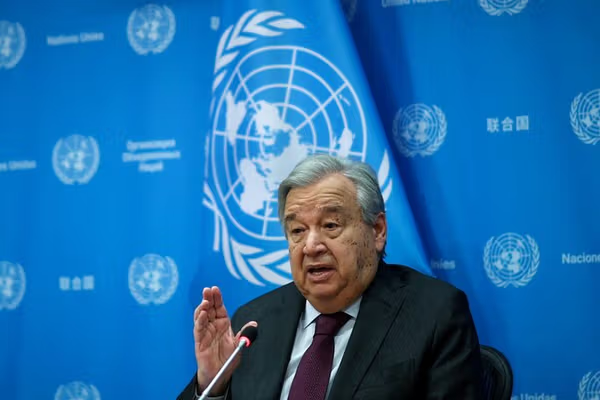
United Nations Secretary-General António Guterres on Tuesday called on Iran and Western countries to intensify diplomatic efforts to prevent the so-called snapback of international sanctions on Tehran initiated by European states last month.

The commander of one of the most secretive and powerful arms of US power, the B-2 stealth bomber wing, described to Fox News what he called their "flawless" June 22 bombing on Iranian nuclear sites.

Iran’s Foreign Minister Abbas Araghchi said on Tuesday that possible negotiations with the United States will hinge on Washington’s readiness for a deal based on mutual interests without threats or intimidation, not on which regional state mediates.

Iran and five other countries have submitted a draft resolution to the International Atomic Energy Agency’s annual general conference calling for a ban on any attack or threat of attack against nuclear sites under UN safeguards, Iran’s foreign ministry said on Tuesday.

International Atomic Energy Agency (IAEA) chief Rafael Grossi on Monday urged Iran to immediately implement the agreement it signed with the UN watchdog last week to resume inspections at the country’s bombed nuclear sites.

Iran’s nuclear chief Mohammad Eslami told the International Atomic Energy Agency’s annual general conference in Vienna on Monday that Tehran’s atomic program will not be destroyed by military operations, accusing Israel and the United States of illegal strikes on its facilities.

Iran’s Foreign Minister Abbas Araghchi told lawmakers in a three-hour closed-door session that the new cooperation deal with the UN nuclear watchdog cannot be published due to diplomatic norms, the Farhikhtegan daily reported Monday, after some MPs demanded its release.
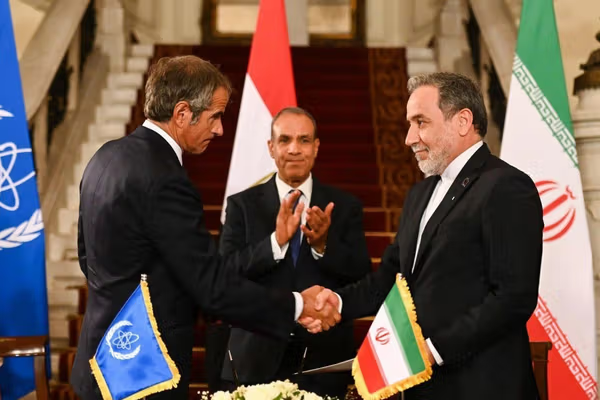
Iran’s new agreement with the UN nuclear watchdog contains no clause preventing the reimposition of UN sanctions on Tehran under the snapback mechanism, an ultraconservative lawmaker said Sunday, citing the text of the deal he said he had reviewed.
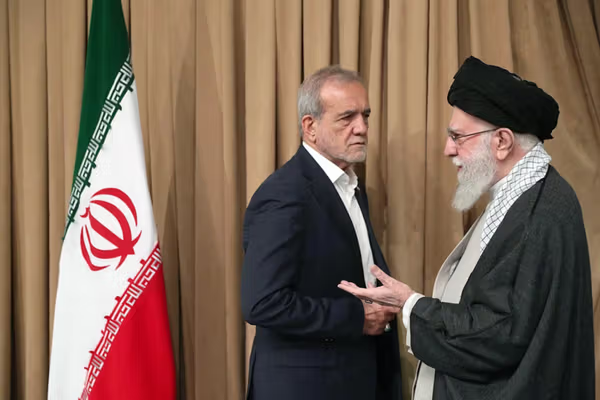
Proposals to end uranium enrichment and halt the country’s missile program were misguided and unrealistic, said a senior member of the office of Iran’s Supreme Leader Ali Khamenei amid intensified internal debate over the country's policies.

Iran’s nuclear chief Mohammad Eslami departed for Vienna to attend the IAEA’s annual general conference, saying Tehran would push for a ban on attacks against atomic facilities, as the Supreme National Security Council outlined strict conditions on future inspections.

Iranian Foreign Minister Abbas Araghchi warned on Saturday that Britain, France, and Germany risk “losing everything” if they move ahead with restoring UN sanctions on Tehran through the so-called snapback mechanism.

The Iranian parliament on Saturday convened an emergency meeting with Foreign Minister Abbas Araghchi to review the government’s new cooperation agreement with the International Atomic Energy Agency (IAEA) signed in Cairo.

Israeli officials told French authorities that Iran’s nuclear program was not entirely destroyed in June’s US-Israeli airstrikes, Le Monde reported on Friday.
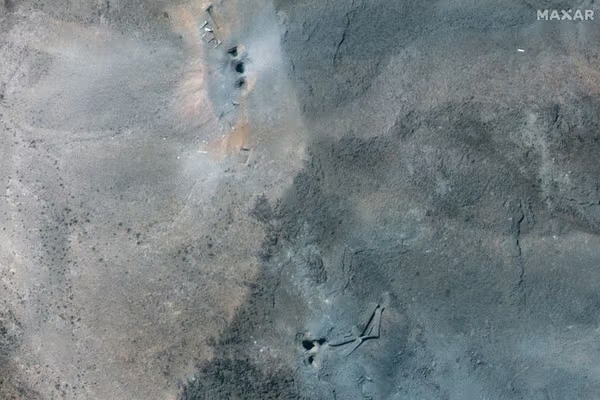
The United States Air Force has ordered a batch of cutting-edge new bunker buster bombs, Defense News reported this week, reaching for the successor technology to huge ordnance which pounded Iranian nuclear sites in June.

US attacks on Iranian nuclear sites forestalled their potential push toward a bomb but a deal must be reached to guarantee Tehran will not go nuclear, former Deputy Assistant Secretary of State Joel Rubin told Iran International.

Iran’s inventory of highly enriched uranium is buried under rubble following US and Israeli strikes on the country's nuclear facilities in June, Iranian foreign minister said on Thursday.